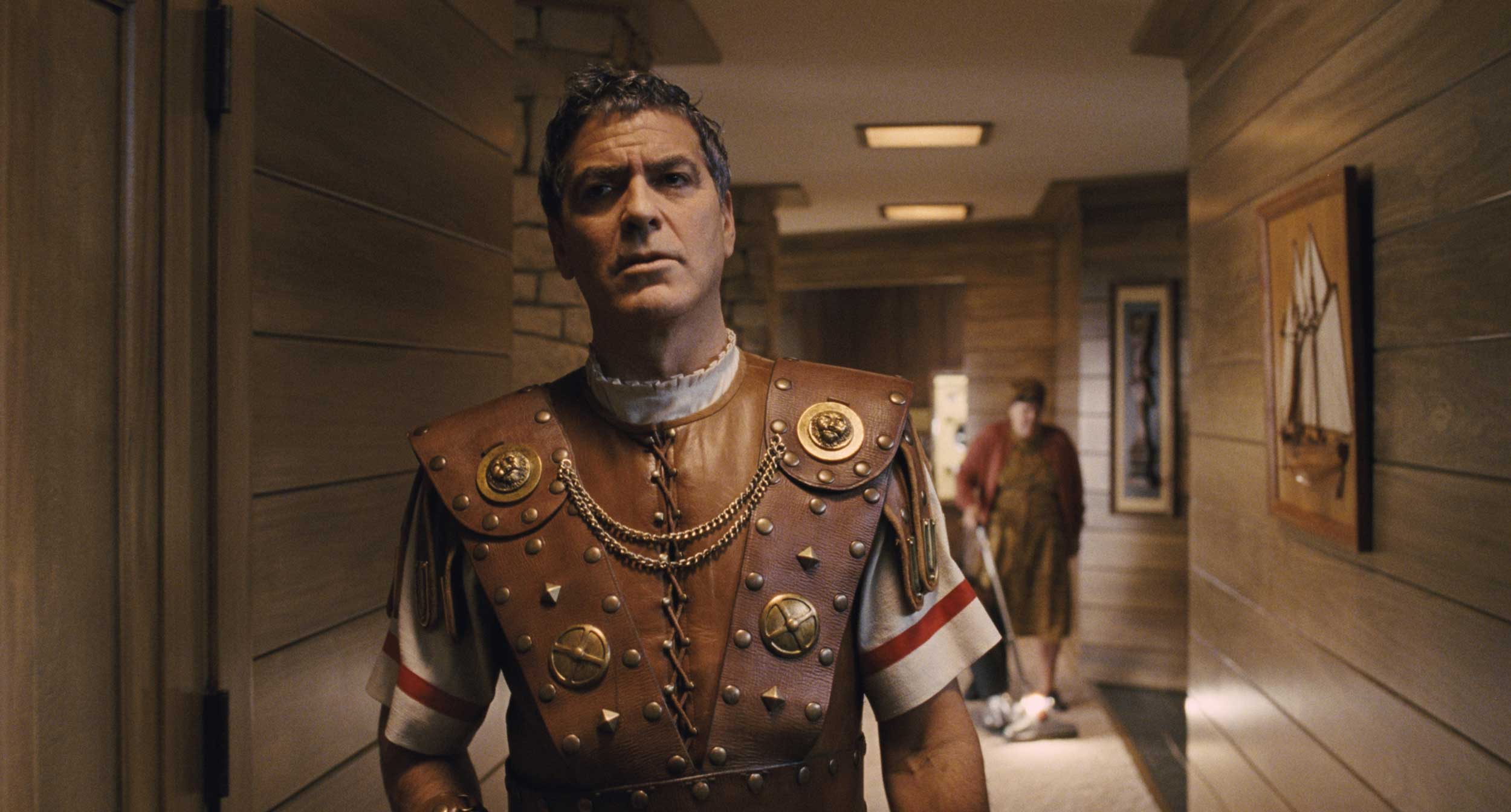Hail, Caesar!
The latest all-star comedy from the Coen Brothers skewers Hollywood and religion.
Overview
Hail, Caesar! takes place on a Hollywood lot during the early nineteen fifties. As such, viewer are given a glimpse at a number of films in production, including a folksy Western, a toe-tapping musical, a lavish costume drama and a sweeping biblical epic. It's fitting that these pictures cover such an array of genres, since the film in which they're found is itself a bit of a jumble. Hail, Caesar! is a mystery, a farce, a treatise on religion and a sly interrogation of cinemas so-called golden age masquerading as the ultimate Hollywood love letter. In lesser hands, such a mishmash of ideas and influences could have been a disaster. In the hands of writer-directors Joel and Ethan Coen, it's one of the funniest, most thought-provoking films to hit cinemas in quite some time. It's also got Channing Tatum tap-dancing in a sailor suit, which quite frankly is worth the price of admission alone.
The film follows a day in the life of Eddie Mannix, played by Josh Brolin on top of his game. Head of Physical Production at the fictional Capitol Pictures, Mannix is charged with ensuring everything runs smoothly behind the scenes, from keeping movie shoots on schedule to diffusing potential scandals before they hit the press. But our protagonist is thrown a curveball when the studio's biggest star, Baird Whitlock, is kidnapped by a communist syndicate known only as 'The Future' who want $100,000 for the actor's safe return. Whitlock is played by George Clooney, who brings to the role the same boneheaded swagger he did to O Brother, Where Art Thou? and Burn After Reading.
Hail, Caesar! is not the first time the Coens have turned their lens on Hollywood, although compared to the anxious existential drama of 1991's Barton Fink, their latest feels much more playful. Whether it's a director (Ralph Fiennes at his urbane best) growing increasingly frustrated with his ill-suited leading man (the absolutely adorable Alden Ehrenreich), or Mannix dodging the inquiries of rival gossip columnists Thora and Thessaly Thacker (Tilda Swinton in dual roles and increasingly ridiculous hats), the film's absurdist sense of humour fits right in with the Coen canon. At the same time, the mean streak of movies like Fargo or A Serious Man is nowhere to be found.
Perhaps it's for this reason that some critics have described the film as lightweight or inconsequential. Respectfully, we think they're missing the point. Hail, Caesar! may seem like one of the Coen's more frivolous efforts, but there's still plenty of subversive stuff going on beneath its glossy surface. For all the affection with which the pair recreate and pay tribute to the films of the era, these moments are undercut by repeated reminders that everything Capitol creates is fundamentally fake. Gossamer fantasies both on screen and off belie a far less glamorous reality, one in which starlets carry on affairs with married directors and underpaid screenwriters fill their scripts with communist propaganda. And while these thinly-veiled references to actual LA scandals are mostly played for laughs, they also suggest that the Coen's see Hollywood as deeply, spiritually hollow.
The film's wicked masterstroke is the way it equates the film biz with religion, presented here as the glossiest fantasy of them all. Whitlock's communist captors decry the studio as part of a capitalist machine designed to exploit "the little guy", a description that brings to mind the famous quote by Karl Marx about religion being the opiate of the masses. Mannix himself is depicted as deeply Catholic, visiting the confessional with comical regularity. Yet his true place of worship is Capitol Pictures, where God is conspicuously absent. Half-completed footage from Whitlock's forthcoming biblical epic features not a chorus of angels, but instead a placeholder card with the words "divine presence to be shot." Later, while shooting the film's climactic finale, Whitlock delivers a rousing speech about the power of Christ, only to flub his final line. The word he forgets? Faith.





